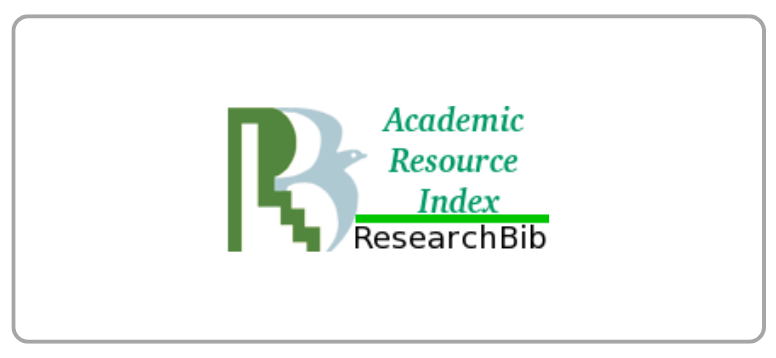A Proposed Syllabus for EFL Writing Class at University
DOI:
https://doi.org/10.21512/lc.v12i1.3176Keywords:
writing skill, syllabus, EFL learnersAbstract
This present study intended to develop the first draft syllabus for writing course in English Education major. Particularly in teaching writing as foreign language, syllabus became one of the key factors for teachers before and while delivering the
lesson. The research was carried out by initial steps of research and development approach (R and D). The respondents were the students from writing classes, writing lecturers, and the stakeholders in one university in Jakarta. In collecting data, the instruments were the questionnaire and in-depth interview. After analyzing the data from need analysis descriptively, the researchers have modeled a developed layout of the syllabus for writing class. The syllabus is developed in a set of concepts and rationale, general and specific objectives or outcomes of the course as competences, teaching methods, materials and content, practices and activity, and evaluation.
Plum Analytics
References
Ambawani, S. (2014). A Proposed syllabus for English Course. LearnING Journal, 1(1), 87–113.
Breen, M. (2001). Syllabus design. In Carter, R., & Nunan, D. (Eds.). The Cambridge guide to teaching English to speakers of other languages. Cambridge: Cambridge University Press.
Brown, J. D. (1995). The elements of language curriculum: A systematic approach to program development. Massachusetts: Heinle & Heinle Publisher.
Cahyono, B. Y., & Widiati, U. (2011). The Teaching of English as a foreign language in Indonesia. Malang: State University of Malang Press.
Christison, M., & Murray, D. E. (2011a). What English Language teachers need to know Volume III: Designing curriculum. New York: Taylor & Fancis e-Libaray. https://doi.org/10.1093/elt/ccv002.
Christison, M., & Murray, D. E. (2011b). What English Language teachers need to know Volume II: Facilitating learning. New York: Taylor & Fancis e-Libaray. https://doi.org/10.4324/9780203846292.
Crystal, D. (2003). English as a global language. New York: Cambridge University Press.
Floris, F. D. (2008). Developing English for General Academic Purposes (Egap) course in an Indonesian university. K@Ta, 10(1), 53–62. https://doi.org/10.9744/kata.10.1.53-62.
Gall, M., Gall, J. P., & Borg, W. R. (2003). Educational research: An introduction (Seventh Ed). USA: Pearson Education. Retrieved from http://psycnet.apa.org/psycinfo/1996-97171-000.
Ghufron, M. A., & Saleh, M. (2016). Designing model of Research Paper Writing Instructional Materials for Academic Writing Course: Textbook Evaluation. Language Circle: Journal of Language and
Literature, 10(2), 114–123.
Graves, K. (2000). Designing Language Courses: a Guide for Teachers. TeacherSource. Canada: Heinemenn English Language Teaching.
Gunantar, D. A. (2016). The Impact of English as an International Language on English Language Teaching in Indonesia. Language Circle: Journal of Language and Literature, 10(2), 141–151. Retrieved from http://ejournal.upi.edu/index.php/psg/article/view/43.
Hidayah, A. T. (2013). Error Analysis on the use of the SimpleTense and The Simple Past Tense in Writing Essays Among TESL College Students. International Journal of Education and Research, 1(12), 1–12.
Koryati. (2011). The role of syllabus: The documentation requirements of ISO 9001:2008. Jurnal Holistics, 3(5), 12–16.
Nation, P., & Macalister, J. (2010). Language Curriculum Design. New York: Taylor & Fancis e-Libaray.
Richards, J. C. (2001). Curriculum Development in Language Teaching. USA: Cambridge University Press. https://doi.org/10.1111/j.1540-4781.2007.00543_2.x.
Wardhani, Z. C., & Sadtono, E. (2014). Designing The syllabus of english for Tourism Subject. International Journal of English and Education, 3(4), 121–132.
Widiati, U. (2002). Problems with peer response of Writingas-a-Process approach in an EFL Writing Classroom. Jurnal Ilmu Pendidikan, 9(3), 188–199.
Willis, D., & Willis, J. (2001). Task-based language learning. In R. Carter & D. Nunan (Eds.), The Cambridge to teaching ro speakers of other languages (pp. 173-79). Cambridge: Cambridge University Press.
Downloads
Published
How to Cite
Issue
Section
License
Authors who publish with this journal agree to the following terms:
a. Authors retain copyright and grant the journal right of first publication with the work simultaneously licensed under a Creative Commons Attribution License - Share Alike that allows others to share the work with an acknowledgment of the work's authorship and initial publication in this journal.
b. Authors are able to enter into separate, additional contractual arrangements for the non-exclusive distribution of the journal's published version of the work (e.g., post it to an institutional repository or publish it in a book), with an acknowledgment of its initial publication in this journal.
c. Authors are permitted and encouraged to post their work online (e.g., in institutional repositories or on their website) prior to and during the submission process, as it can lead to productive exchanges, as well as earlier and greater citation of published work.
USER RIGHTS
All articles published Open Access will be immediately and permanently free for everyone to read and download. We are continuously working with our author communities to select the best choice of license options, currently being defined for this journal as follows: Creative Commons Attribution-Share Alike (CC BY-SA)
























